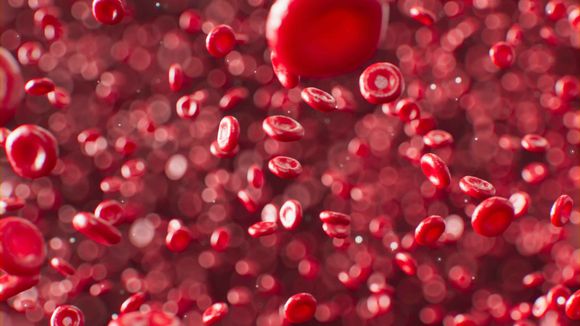Causes and symptoms
Low hemoglobin levels can be caused by various factors. Some of the common symptoms associated with low hemoglobin include:
- Fatigue
- Shortness of breath
- Dizziness
- Pale skin
- Cold hands and feet
- Rapid or irregular heartbeat
Possible causes of low hemoglobin levels include
Iron-deficiency anemia
Iron is essential for hemoglobin production. Consult a primary care physician or a hematologist for diagnosis and treatment.
Vitamin deficiency (B12 and folate)
These vitamins are necessary for red blood cell production. A primary care physician or a nutritionist can help identify and address these deficiencies.
Hemolytic anemia
Red blood cells are destroyed faster than they can be produced. A hematologist can provide appropriate treatment and guidance.
Aplastic anaemia
Bone marrow is not producing enough red blood cells. Consult a hematologist for diagnosis and treatment.
Kidney Disease
Chronic kidney disease can lead to decreased erythropoietin production, which is essential for red blood cell production. Consult a nephrologist for diagnosis and treatment.
Cancer or cancer treatment
Chemotherapy and radiation therapy can lower hemoglobin levels. Consult an oncologist for diagnosis and management.

Photo by Roberto Sorin on Unsplash
Side Effects of Medical Drugs
Certain medications can cause low hemoglobin levels as a side effect. These include:
- Chemotherapy drugs
- Some antibiotics
- Anticonvulsants
- Nonsteroidal anti-inflammatory drugs (NSAIDs)
If you suspect your medication is causing low hemoglobin levels, consult your healthcare provider for alternative treatment options.
Herbal and Natural Treatments
Some herbal remedies can help increase hemoglobin levels:
Nettle (Urtica dioica)
Rich in iron and vitamins, nettle may help improve hemoglobin levels.
Yellow Dock (Rumex crispus)
Contains iron and may help with iron absorption.
Dandelion (Taraxacum officinale)
High in vitamins and minerals, dandelion can support overall health and may help improve hemoglobin levels.
Alfalfa (Medicago sativa)
Contains vitamins and minerals that can aid in red blood cell production.
Lifestyle Changes
To prevent or address low hemoglobin levels, consider the following lifestyle changes:
- Eat a balanced diet rich in iron, vitamin B12, and folate.
- Limit alcohol consumption, as excessive intake can negatively impact red blood cell production.
- Avoid smoking, as it can reduce oxygen-carrying capacity and contribute to anemia.
- Exercise regularly, but consult your healthcare provider for appropriate recommendations based on your hemoglobin levels.

Photo by Towfiqu barbhuiya on Unsplash
Questions and answers
Below are ten frequently asked questions that are not covered in the article:
Question: Can low hemoglobin levels be hereditary?
Answer: Yes, some genetic conditions like sickle cell anemia and thalassemia can result in low hemoglobin levels. Consult a genetic counselor or a hematologist for more information.
Question: Can dehydration cause low hemoglobin levels?
Answer: Dehydration can cause a temporary increase in hemoglobin levels, as the blood becomes more concentrated.
Question: How long does it take to raise hemoglobin levels?
Answer: The time it takes to raise hemoglobin levels depends on the underlying cause and the severity of the deficiency. With appropriate treatment and lifestyle changes, mild to moderate anemia may improve within a few weeks to a few months. Severe anemia may take longer to treat and may require more intensive interventions.
Question: Are there any specific foods to avoid if I have low hemoglobin levels?
Answer: While there aren't any specific foods that directly lower hemoglobin levels, it's essential to avoid foods that can inhibit iron absorption, such as excessive tea, coffee, or calcium-rich foods consumed at the same time as iron-rich meals. Focus on a balanced diet that includes iron, vitamin B12, and folate-rich foods to help improve your hemoglobin levels.
Question: Can menstruation cause low hemoglobin levels?
Answer: Heavy or prolonged menstruation can lead to iron-deficiency anemia due to blood loss, resulting in low hemoglobin levels. It's essential for individuals with heavy periods to maintain a diet rich in iron and consider iron supplementation under the guidance of a healthcare provider. If heavy bleeding persists, consult a gynecologist for further evaluation and management.
Question: Can stress contribute to low hemoglobin levels?
Answer: While stress itself does not directly lower hemoglobin levels, it can contribute to poor dietary habits, sleep disturbances, and reduced self-care, which may indirectly affect hemoglobin levels. Managing stress and maintaining a balanced lifestyle can support overall health, including hemoglobin levels.
Question: Is it safe to take iron supplements without a doctor's recommendation?
Answer: It is not advisable to take iron supplements without consulting a healthcare provider, as excessive iron intake can cause health issues like iron overload or gastrointestinal side effects. Consult your doctor to determine the appropriate dosage and duration for iron supplementation based on your specific needs.
Question: Can pregnancy cause low hemoglobin levels?
Answer: Yes, pregnancy can lead to lower hemoglobin levels due to increased blood volume and the growing fetus's iron demands. Pregnant individuals are often recommended to take prenatal vitamins, which include iron, to help maintain healthy hemoglobin levels. Consult your healthcare provider for appropriate guidance during pregnancy.
Question: Are there any risks associated with herbal treatments for low hemoglobin levels?
Answer: Herbal treatments can have potential side effects and may interact with other medications. It's essential to consult your healthcare provider before starting any herbal treatment, especially if you have existing health conditions or are taking other medications.
Question: How often should I get my hemoglobin levels checked?
Answer: The frequency of checking your hemoglobin levels depends on your individual risk factors, existing health conditions, and any ongoing treatment. If you have a history of anemia or are at risk due to a medical condition, your healthcare provider may recommend more frequent testing. For healthy individuals, hemoglobin levels are typically checked during routine blood tests, which may be performed every 1-2 years or as advised by your healthcare provider.








